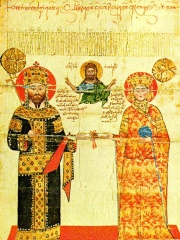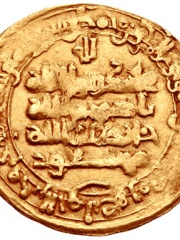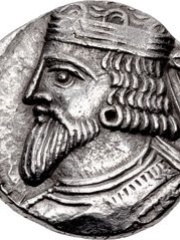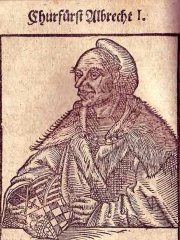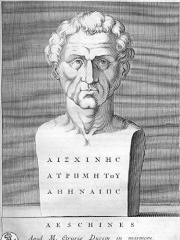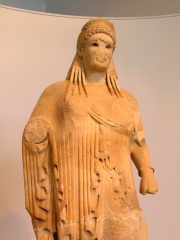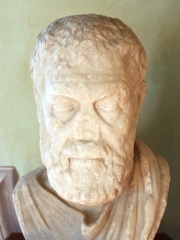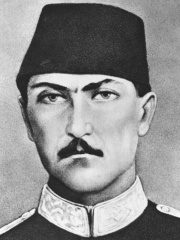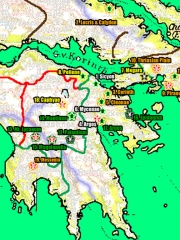Politician
Glaucus of Corinth
EN.WIKIPEDIA PAGE VIEWS (PV)

 Glaucus of Corinth
Glaucus of Corinth
His biography is available in 20 different languages on Wikipedia. Glaucus of Corinth is the 6,592nd most popular politician (up from 10,026th in 2024), the 359th most popular biography from Greece (up from 507th in 2019) and the 151st most popular Greek Politician.
Memorability Metrics
Page views of Glaucus of Corinth by language
Among Politicians
Among politicians, Glaucus of Corinth ranks 6,592 out of 19,576. Before him are Yang You, V. V. Giri, Alexios III of Trebizond, Archduke Rudolf of Austria, Ivo Sanader, and Mas'ud I of Ghazni. After him are Artabanus III of Parthia, Sher Ali Khan, Friedrich Wilhelm I, Duke of Saxe-Weimar, Albert I, Duke of Saxony, Christopher Báthory, and Thomas R. Marshall.
Most Popular Politicians in Wikipedia
Go to all RankingsYang You
605 - Present
HPI: 64.63
Rank: 6,588
V. V. Giri
1894 - 1980
HPI: 64.63
Rank: 6,589
Alexios III of Trebizond
1338 - 1390
HPI: 64.63
Rank: 6,590
Archduke Rudolf of Austria
1919 - 2010
HPI: 64.63
Rank: 6,591
Ivo Sanader
1953 - Present
HPI: 64.63
Rank: 6,592
Mas'ud I of Ghazni
998 - 1041
HPI: 64.62
Rank: 6,593
Glaucus of Corinth
HPI: 64.62
Rank: 6,594
Artabanus III of Parthia
100 - 90
HPI: 64.62
Rank: 6,595
Sher Ali Khan
1825 - 1879
HPI: 64.62
Rank: 6,596
Friedrich Wilhelm I, Duke of Saxe-Weimar
1562 - 1602
HPI: 64.62
Rank: 6,597
Albert I, Duke of Saxony
1175 - 1260
HPI: 64.62
Rank: 6,598
Christopher Báthory
1530 - 1581
HPI: 64.62
Rank: 6,599
Thomas R. Marshall
1854 - 1925
HPI: 64.62
Rank: 6,600
In Greece
Among people born in Greece, Glaucus of Corinth ranks 359 out of NaN. Before him are Diagoras of Melos (-450), Zoilus (-400), Laonikos Chalkokondyles (1423), Perictione (-500), Aspasia Manos (1896), and Lycophron (-320). After him are Cebes (-500), Alexis Tsipras (1974), Aeschines of Sphettus (-430), Pleistoanax (-500), Antenor (-590), and Ange Postecoglou (1965).
Others born in Greece
Go to all RankingsDiagoras of Melos
WRITER
450 BC - 450 BC
HPI: 64.82
Rank: 353
Zoilus
PHILOSOPHER
400 BC - 320 BC
HPI: 64.73
Rank: 354
Laonikos Chalkokondyles
WRITER
1423 - 1490
HPI: 64.72
Rank: 355
Perictione
POLITICIAN
500 BC - 400 BC
HPI: 64.71
Rank: 356
Aspasia Manos
COMPANION
1896 - 1972
HPI: 64.69
Rank: 357
Lycophron
WRITER
320 BC - 280 BC
HPI: 64.65
Rank: 358
Glaucus of Corinth
POLITICIAN
HPI: 64.62
Rank: 359
Cebes
PHILOSOPHER
500 BC - 400 BC
HPI: 64.47
Rank: 360
Alexis Tsipras
POLITICIAN
1974 - Present
HPI: 64.46
Rank: 361
Aeschines of Sphettus
PHILOSOPHER
430 BC - 360 BC
HPI: 64.46
Rank: 362
Pleistoanax
POLITICIAN
500 BC - 408 BC
HPI: 64.39
Rank: 363
Antenor
SCULPTOR
590 BC - 500 BC
HPI: 64.37
Rank: 364
Ange Postecoglou
COACH
1965 - Present
HPI: 64.36
Rank: 365
Among Politicians In Greece
Among politicians born in Greece, Glaucus of Corinth ranks 151. Before him are Hypereides (-390), Alexander V of Macedon (-390), Princess Maria of Greece and Denmark (1876), Quintus Caecilius Metellus Numidicus (-200), Ali Rıza Efendi (1839), and Perictione (-500). After him are Alexis Tsipras (1974), Pleistoanax (-500), Ahmed Izzet Pasha (1864), Tiberius Claudius Narcissus (50), Aratus of Sicyon (-271), and Eurydice of Egypt (-400).
Hypereides
390 BC - 322 BC
HPI: 65.30
Rank: 145
Alexander V of Macedon
390 BC - 294 BC
HPI: 65.23
Rank: 146
Princess Maria of Greece and Denmark
1876 - 1940
HPI: 65.02
Rank: 147
Quintus Caecilius Metellus Numidicus
200 BC - 91 BC
HPI: 65.02
Rank: 148
Ali Rıza Efendi
1839 - 1888
HPI: 65.01
Rank: 149
Perictione
500 BC - 400 BC
HPI: 64.71
Rank: 150
Glaucus of Corinth
HPI: 64.62
Rank: 151
Alexis Tsipras
1974 - Present
HPI: 64.46
Rank: 152
Pleistoanax
500 BC - 408 BC
HPI: 64.39
Rank: 153
Ahmed Izzet Pasha
1864 - 1937
HPI: 64.24
Rank: 154
Tiberius Claudius Narcissus
50 - 54
HPI: 64.16
Rank: 155
Aratus of Sicyon
271 BC - 213 BC
HPI: 64.10
Rank: 156
Eurydice of Egypt
400 BC - 300 BC
HPI: 64.07
Rank: 157


